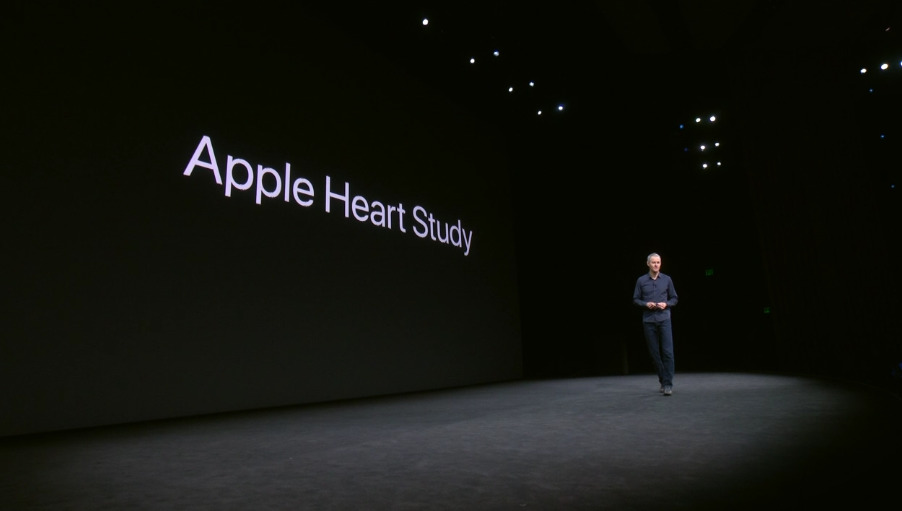Apple in conjunction with Stanford Medicine is launching a new study on atrial fibrillation that aims to detect heart rate irregularities using a consumer-grade wearable device — Apple Watch.
The study was announced during Tuesday's event during the Apple Watch Series 3 announcement. Apple noted that it was working with the U.S. Food and Drug Administration on the process.
The Apple Watch is the most used heart rate monitor in the world, according to Apple. The install base of the device gives Apple and Stanford a large body of potential data points for the study.
Atrial fibrillation is a change in the normal rhythm of the heart characterized by irregular beat, which is generally imperceptible by the sufferer. The disease is associated with a significantly higher rate of heart failure, stroke, and is linked to dementia as well.
Between two and three percent of North Americans and Europeans are affected by the disease. Four percent of people between 60 and 70 are afflicted, with the number rising to 14 percent of those over 80 years of age.
Atrial fibrillation was responsible for 193,000 deaths in 2015.
No specific date for launch was revealed. The first phase of the study will be available to users on the App Store later in 2017.
 Mike Wuerthele
Mike Wuerthele








 Charles Martin
Charles Martin
 Christine McKee
Christine McKee
 Wesley Hilliard
Wesley Hilliard
 Malcolm Owen
Malcolm Owen
 Andrew Orr
Andrew Orr
 William Gallagher
William Gallagher
 Sponsored Content
Sponsored Content








4 Comments
This is awesome news. As well as the push alerts for unusual heart rate or rhythm. Wow. I'm signing up for the study if I can.
I guess I'm a beta for the study, as I'm already participating. Good for all of us.
Yes, this is how it needs to be done. One disease at a time, with clinical validation. The notion that Apple (or any) devices could deploy a dozen or more diagnostic tests in a year or two after conception was always utter fantasy. Green engineers still wet behind the ears are clueless about some things, and make unrealistic promises, be it medical diagnostics or autonomous vehicles. Pity that Apple had to learn the hard way, there are plenty of skilled scientists who know. Apple should have hired some having experience from the beginning. There are reasons bio-monitoring is slow and expensive and sometimes impractical, and they have no simple software solution.
I would love to participate in the study, i have been diagnosed with inapropriate synus tachicardia and i have random arrythmias that will take my breath away; my heartbeat can go from 180 to 40 (using a Garmin tracker) in a matter of seconds and it will never happen when i am wearing the holter of course; i get all the symptoms of a heart attack and luckly nothing happens, but when i tell my doctors they base their answers on the data from the tests, and of course each test comes clean; i have also been diagnosed with vasovagal syncope. I would like prove to my doctors that i really have arrhythmias and they should be more proactive, that is why this study will help me, other patients and apple!Kyria